The Best Things You Can Do For Your DP Career Off-Set, Part 1: Relationships
These four types of relationships are critical to the longevity of your cinematography career.
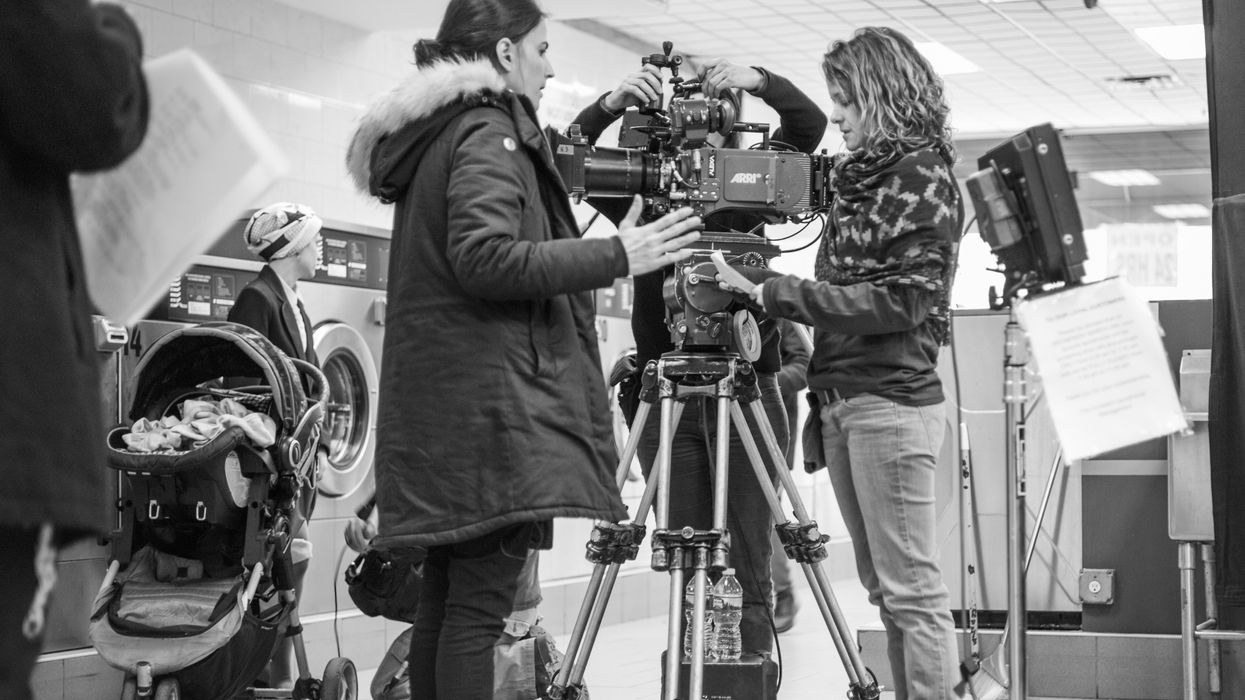
Working as a DP has those magical moments: thick into the third cup of coffee with a director during a shotlisting session as you gleefully realize you both get excited about zoom out reveals; helping sail that set ship in stormy conditions as a crew comes together well; and the surprise kiss of a lens flair while operating a perfect dolly move right into the heart of the story.
If you could play all day panning and tilting and lensing and lighting your way to using visual storytelling to change the zeitgeist of our times—and pick up an Oscar nod or two as you go—you probably would! But for most cinematographers, there is a ton of time and work that goes into their craft and their careers while they are off set. This time can be broken down into two broad categories: relationship-building, and craft-enhancement.
In the long run, success in this business combines cinematic artistry with relationship prowess.
Here we’ll focus on the former, with an eye towards advice for newer and mid-level DPs, and offer some big picture thoughts and some practical suggestions. We look to the camera-focused Panavision and the Brooklyn-based Lightbulb Grip & Electric Co for advice on developing working relationships with rental houses. The jobs that will come your way often stem from recommendations by your peers, your films are often only as good as your crew, and directors and producers are looking to hire someone they like being around. In the long run, success in this business combines cinematic artistry with relationship prowess. Here are four types of relationships you'll want to foster to move ahead in this business.
1. The Lighting House
Adam Richlin works as a Director of Photography and he has had short films screen at prestigious festivals Cannes, Tribeca, and Toronto. He also runs Lightbulb Grip. A rental house can help you stretch your budget, and can also be a source of technical knowledge. The folks on the floor handle hardware all day and know a variety of gear, and they can offer advice on particular rigging setups you are looking to do. They may also be able to suggest ways of achieving the look you are going for on a cheaper budget by using different tools, hence freeing up funds to be allotted elsewhere.
Everyone knows brand names like Arri and Kino Flo, but if you need to be budget conscious, perhaps there’s an off-brand tool at 70% of the cost that can create the same effect. “Boutique rental houses will have more time to talk with you about conceptual lighting and filmmaking design than larger houses,” Richlin believes. “There will be more shared expertise and more flexibility that you can benefit from.”
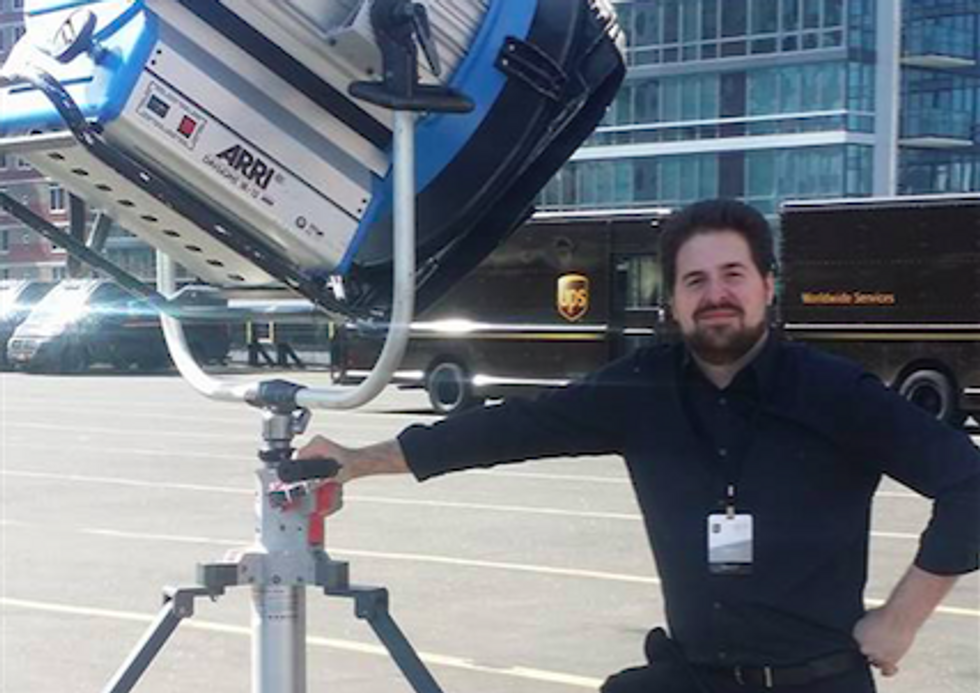
From a career perspective, sticking with a small number of rental houses makes the most sense. You’ll establish a relationship, and when you are a consistent customer, the house will be more likely to give you a deal on those passion projects. With more lights at your disposal, you’ll have more choices on set, and this influences the look you can achieve and the time it takes you to light—arguably the two main things, after being a charming person, that your career depends on.
Pro tips? Richlin suggests working out your entire lighting plan before you bid a project. “It costs me a lot of time to do back and forth over a budget,” he shares. “If you get known as someone who comes in with one gear list and sticks to it, it’s a lot easier to work with you and a lot easier for me to give you a discount in the future.” Let the lighting house know what are your wants versus your needs. As the DP, you don't want to take on responsibility for the budget, but it is helpful if your producer's agreeable to letting the gear budget be shared with the person putting your quote together, so they have a goal to aim for to make everyone happy.
2. The Camera House
Camera rental houses are also places to build relationships and seek professional advice. Meg Kettell is a freelance DP whose work spans narrative, vérité documentaries, commercials, and branded content, and she co-chairs the Eastern Regional Women’s Committee of the International Cinematographers Guild. Kettell came up through the union ranks working as a camera assistant. “I feel lucky because I met all these people when I was a union AC working on fully-funded projects, and I worked on a lot of films out of Panavision and Arri CSC,” Kettell says.
When she switched to shooting, she found support through those same connections. “Recently I shot a three-day short film and I got hooked up with an Arri ALEXA and a great set of lenses. If I didn’t have that relationship, we’d have been shooting on a Sony A7S.”
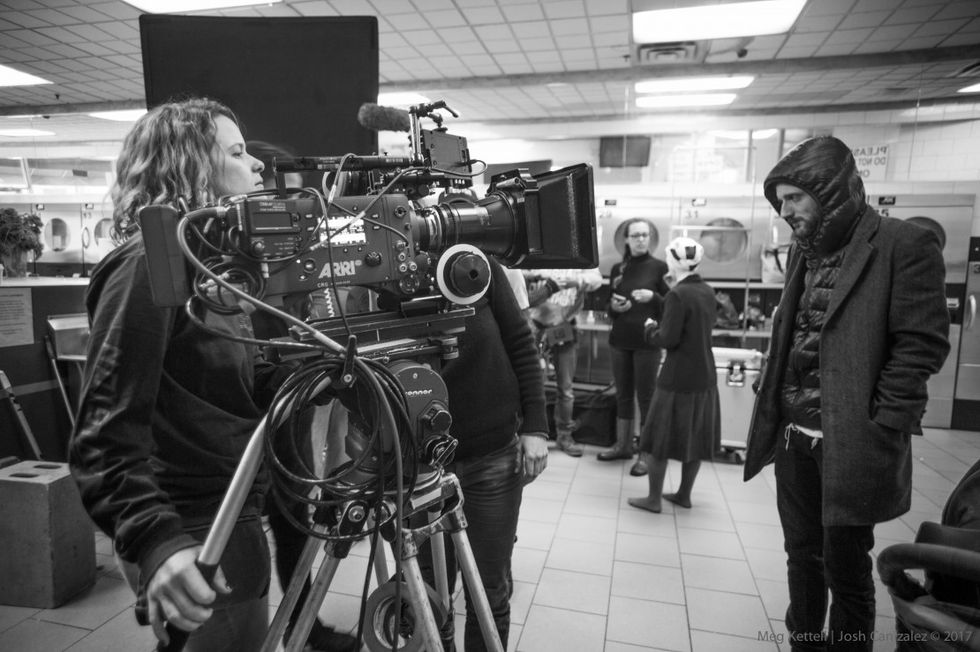
Jim Roudebush, Marketing VP at Panavision, says there's sometimes a sense around the industry that his company is reserved for studio pictures, whereas he feels establishing relationships with emerging talent is at the core of what he does. Panavision's New Filmmaker Grant lets indie filmmakers and students access high-level gear at little or no cost.
"A lot of the customers I have now called when they were younger and asked if they could come in and do camera tests on their own time," Roudebush shares. These shooters were building their knowledge bases, and forming a connection with the company. "Now they're shooting features and are members of the ASC." When Panavision supports a project, they want it to end up on the DP's reel and help propel the DP to the next job. "We want to establish a relationship and keep it going forever."
Pro tip? If you're asking for a great deal, be flexible, both with your gear list and, if possible, your timing. A rental house is better able to offer support during a slow period, whereas during pilot season there may not be any gear left to give.
"There are a lot of people at companies like Panavision who have expertise and can help people when they feel like they're underwater."
Of course, you can begin conversations at any time, but keep in mind that a rental house may not be able to confirm a great deal until a few weeks before your shoot begins. Depending on your project (and your director and producer) this won't be a good fit for all shoots. Everyone wants to shoot with the latest and greatest gear, but if you have only a DSLR budget to offer and you're asking for an ALEXA, consider going for the original body instead of the most current model, as that may be easier for a rental house to confirm. "Whether or not we can support a low-budget project is often less about what the camera rents for," Roudebush says, "and more about what we have on the shelves."
Roudebush also stressed testing. "It's the wild west with the variety of lenses, formats, camera, everything! There is so much out there to read it can get confusing. There are a lot of people at companies like Panavision who have expertise and can help people when they feel like they're underwater." He encourages cinematographers to look at the Panavision site first to get a sense of the product range and to get a feel for the business, and then to come in with questions. PANALAB LEARNING CENTER features reference documents, videos, and technical information.
3. Your Peers & Crew
Christine Ng is a DP shooting commercials, music videos, narratives, and documentaries, including the Emmy-nominated doc Everything is Copy, produced for HBO. For her, the single most important asset a DP has is her crew. “Some people may think that having the best camera gear and a great lighting package is the key to achieving your best work,” she reflects. “But the crew of people I can count on has proven time and again to be the answer to most of my on-set issues—and they’ve also become some of my closest friends.”
Ng finds that little gestures—buying a coffee, sharing a beer—go a long way towards fostering relationships with colleagues. “I also want my crew to know that if they ever need a hand on their shoots, I’d be willing to help out,” Ng says. “You never know if your AC has a script they’ve been working on, making them the next hit director.”
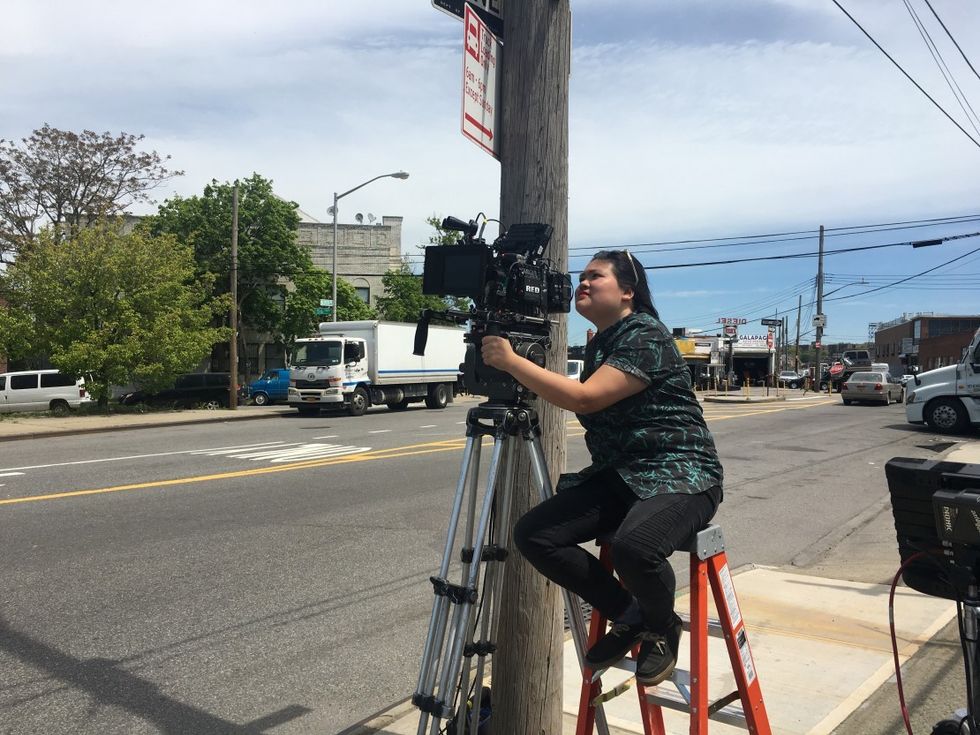
Richlin highly recommends getting to know people off-set who you think are smart and who you like personally, regardless of what their on-set job is. “I think the most important thing I’ve gotten out of being DP is learning how important building relationships is,” Richlin reflects. “Get out on the days you aren’t working and go get coffee, and lunch, and beers, with as many people as you possibly can because you never know which one knows a producer or a director who is looking for a DP.”
If you are in the beginning stages of your career, or in a famine curve of the feast-or-famine work cycle, you may be rich in time, and asking people you like being around to hang out in the interest of helping each other isn’t a bad way to spend an hour. Adam Richlin offers an example of taking a PA for beers—and two months later the fellow was asking him advice on renting cameras. Shortly after that, Richlin found himself shooting the director's cultural documentary all over Central America—and years later they returned to Belize to shoot a well-paid commercial. “Nearly half the world travel I’ve done in my life is because I asked Milton out for a beer,” Richlin recalls, “because he seemed like an interesting guy.”
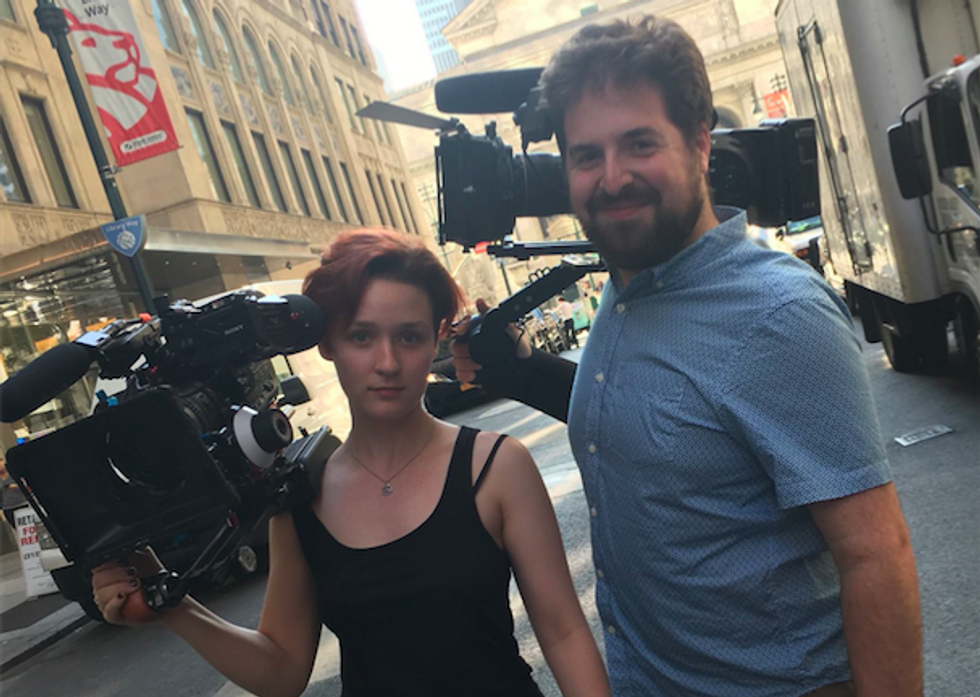
Richlin also stresses sharing expertise and skills among peers. On Facebook, he moderates the groups Grip and Electric, NYC Filmmakers, and Grip, Electric and Camera. He is part of over 40 film-related groups, and contributes “as much knowledge as I can to help other filmmakers. If you ask for help, people will help you once and then there’s no connection. If you help them when they need it, they’ll remember you.” I’ll back that up: I make my living as a cinematographer in New York and Richlin has given me very supportive deals on lower budget projects and has always been generous with his time when I am looking to talk out a particular lighting quandary, and hence he has become the first person I call when we are looking to rent grip and electric gear.
“Nearly half the world travel I’ve done in my life is because I asked Milton out for a beer.”
Meg Kettell stresses the importance of peer-to-peer relationships and recommendations. “Physically meeting people is a huge part of my work, be it when we're having a drink at a New York Women In Film And Television event or when we’re in the same room at Ellen Kuras’ house as part of a union meet up. Meeting face-to-face enables people to get to know one another and know who would be a good fit to recommend personality-wise. When friends have to replace themselves or take a personal day on a job, they recommend me, and that’s where a lot of my work comes from.”
4. Directors and Producers
Kettell believes the vast majority of work for DPs comes from producers and directors—and once you build those relationships you’re in it for the long haul. “Moreso than the script, a lot of the work I take is based on wanting to collaborate with those directors or producers,” Kettell shares. “If we’re on a commercial that doesn’t blow me away because I’m not excited about the product, I’m still giving 200% because I’m working on those relationships.”
Putting DPs in the same room as directors and producers enables people to meet face to face. If you live somewhere with a lot of filmmakers, look to join groups, and if there aren’t already meet-ups happening between cinematographers and above-the-line folks, consider becoming the person to step up and help with that coordination. In NYC, Kettell is striving to connect various women filmmakers across departments, bringing together groups such as the Producers Guild of America, the Directors Guild of America, and the camera union.
While face-to-face often resonates the strongest, there are also a number of Facebook groups where you can meet people and build relationships. On set, Richlin often meets people who know him though they’ve never been introduced, as they recognize his name as a helpful voice from a Facebook group.
If you're going for in-person meetings, while you want to be cognizant of people’s time, one-on-one meetings are often the best. Chase Bowman is an LA-based DP who has shot 18 feature films and worked with directors such as Joss Whedon. “Take lunch and coffee meetings with directors and producers you have worked with and want to work with,” Bowman advises. “I just started doing it after years of sort of avoiding it and it’s awesome what it does to your network.”











